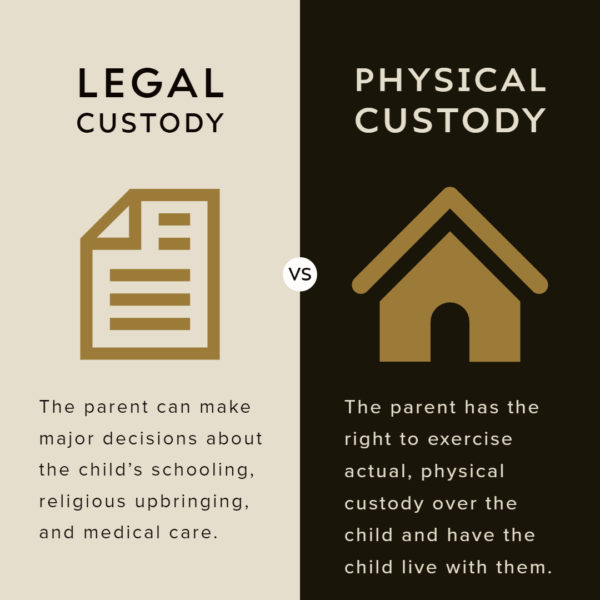
Child custody lawyer!
Child custody disputes can be emotionally taxing and legally complex affairs.
When parents decide to separate or divorce, the question of who will have custody of the children becomes a paramount concern.
In these difficult situations, a child custody lawyer becomes an invaluable ally, guiding parents through the legal processes, ensuring the best interests of the child, and striving to achieve a fair and just custody arrangement.
This article will delve into the world of child custody lawyers, exploring their roles, responsibilities, and the critical aspects of child custody law.
We will also discuss the factors that influence custody decisions, the various types of custody arrangements, and the benefits of seeking professional legal representation during child custody disputes.
Understanding Child Custody Law
Child custody law varies from one jurisdiction to another, but some fundamental principles remain consistent.
At its core, child custody law aims to determine what is in the best interests of the child when parents are unable to reach a mutual agreement regarding custody arrangements.
Legal vs. Physical Custody

Child custody can be broadly categorized into two main types: legal custody and physical custody.
Legal Custody: Legal custody refers to a parent’s right to make important decisions on behalf of the child, including decisions about education, healthcare, religion, and general well-being.
In many cases, parents share joint legal custody, which means they must make these decisions together.
However, sole legal custody can be granted to one parent if it is deemed to be in the child’s best interests.
Physical Custody: Physical custody is applicable to where the child will reside and with whom they will spend their time.
Similar to legal custody, physical custody can be shared jointly, or one parent may be granted primary physical custody when the other has visitation rights or scheduled parenting time.
Factors Influencing Custody Decisions
When determining custody arrangements, courts consider various factors to ensure the child’s well-being. These factors often include:
- The child’s age, gender, and developmental needs.
- Each parent’s physical and mental health.
- The child’s relationship with each parent.
- The ability of each parent to provide a stable and loving environment.
- Any history of abuse, neglect, or substance abuse.
- The child’s preferences, depend on their age and maturity.
- The proximity of each parent’s residence to the child’s school and community.
- Child custody decisions are made on a case-by-case basis, and the court’s primary concern is the child’s welfare.
The Role of a Child Custody Lawyer
Child custody lawyers are legal professionals who specialize in family law and have expertise in navigating the intricacies of child custody disputes.
Their primary role is to advocate for their clients, ensuring that the best interests of the child are taken into account while pursuing a favorable custody arrangement for their client.
Legal Representation and Advocacy
One of the primary functions of a child custody lawyer is to provide legal representation for their client during custody proceedings.
This involves preparing legal documents, filing motions, and presenting arguments in court on behalf of the parent they represent.
A skilled child custody lawyer will use their knowledge of family law to advocate for their client’s rights and interests.
Legal Advice and Strategy
Child custody lawyers play a crucial role in providing legal advice and developing a strategic approach to the case.
They assess their client’s situation, review the relevant laws, and advise on the best course of action.
This includes helping parents understand their rights and responsibilities, as well as the potential outcomes of different custody arrangements.
Negotiation and Mediation
Many child custody disputes are resolved through negotiation or mediation rather than going to court.
Child custody lawyers are skilled negotiators who can help parents reach mutually agreeable custody arrangements outside of the courtroom.
Mediation can be a less adversarial and emotionally draining process, and a lawyer’s guidance can facilitate productive discussions.
Court Representation
In cases where parents cannot reach a consensus, child custody lawyers represent their clients in court.
They present evidence, question witnesses, and make compelling arguments to persuade the judge to rule in their client’s favor.
Experienced lawyers are familiar with courtroom procedures and are adept at advocating effectively on behalf of their clients.
You Might Like Also: How Long Does It Take To Become a Lawyer: A Comprehensive Guide
Types of Custody Arrangements
Child custody arrangements can take several forms, depending on the specific circumstances of each case.
These arrangements are designed to meet the best interests of the child while considering the parents’ abilities and circumstances.
Some common types of custody arrangements include:
1. Joint Legal Custody: Both parents share the responsibility for making important decisions regarding the child’s upbringing, even if the child primarily resides with one parent.
2. Joint Physical Custody: The child spends a significant amount of time living with both parents.
This arrangement often requires a high degree of cooperation and communication between the parents.
3. Sole Legal Custody: One parent is granted the exclusive authority to make important decisions for the child. The non-custodial parent may still have visitation rights.
4. Sole Physical Custody: The child primarily resides with one parent, while the other parent typically has scheduled visitation or parenting time.
5. Split Custody: In cases where there are multiple children, the children may be divided between the parents. Each parent has primary custody of at least one child.
6. Bird’s Nest Custody: In this unique arrangement, the child remains in the family home, and the parents take turns living with the child, moving in and out according to a set schedule.
The choice of custody arrangement depends on various factors, including the child’s needs and the parents’ abilities and circumstances.
Child custody lawyers work to ensure that their client’s preferences and the child’s best interests are taken into consideration when negotiating or litigating custody arrangements.
Recommended For You: Car Accident Lawyer: Discover The Top Attorney For Your Case
Benefits of Hiring a Child Custody Lawyer
Navigating a child custody dispute can be a daunting task, and there are several compelling reasons to seek the assistance of a child custody lawyer:
1. Legal Expertise: Child custody lawyers are well-versed in family law and have extensive knowledge of the specific laws and regulations governing child custody in their jurisdiction.
Their expertise can be invaluable in understanding the legal complexities of your case.
2. Objective Advice: Emotions often run high in child custody disputes, making it challenging for parents to make rational decisions.
A lawyer can provide objective advice and help you make decisions that are in the best interests of your child.
3. Legal Procedures: Child custody cases involve a significant amount of paperwork, court filings, and deadlines.
A lawyer can handle these administrative tasks efficiently, ensuring that all legal procedures are followed correctly.
4. Advocacy in Court: If your case goes to court, having a skilled child custody lawyer by your side can make a significant difference in the outcome.
They can present a strong case on your behalf and advocate for your rights as a parent.
5. Negotiation Skills: Many child custody disputes are resolved through negotiation or mediation.
Lawyers are trained negotiators who can work to find common ground and reach mutually acceptable agreements.
6. Protection of Your Rights: Your child custody lawyer will work tirelessly to protect your parental rights and ensure that the court considers your perspective and preferences.
7. Reducing Stress: Going through a child custody dispute is emotionally taxing.
Having a lawyer to handle the legal aspects of your case can alleviate some of the stress and anxiety associated with the process.
Related Article: Top 10 Tricks Lawyers Use in Depositions: Expert Strategies For Success
The Costs of Hiring a Child Custody Lawyer
While the benefits of hiring a child custody lawyer are substantial, it’s essential to be aware of the associated costs.
Legal representation does come with fees, and the expense can vary based on factors such as the lawyer’s experience, the complexity of the case, and the region’s cost of living.
Some common fee structures for child custody lawyers include:
1. Hourly Rates: Lawyers charge an hourly rate for their time, and clients are billed based on the number of hours spent on their cases.
Hourly rates can vary significantly, with more experienced lawyers typically charging higher rates.
2. Flat Fees: Some lawyers offer flat-fee arrangements for specific services, such as preparing legal documents or representing clients in mediation.
3. Retainers: Lawyers may require clients to pay an upfront retainer fee, which is a lump sum amount that is deposited into a trust account.
The lawyer bills their time against the retainer, and when it is depleted, the client must replenish it.
4. Contingency Fees: Contingency fees are typically not used in child custody cases.
They are more common in personal injury cases, where the lawyer’s fee is contingent on winning the case.
It’s essential to discuss fees and payment arrangements with your chosen child custody lawyer during the initial consultation.
Many lawyers offer free or low-cost initial consultations, which provide an opportunity to understand their fee structure and assess whether their services align with your needs and budget.
Read Also: What Is a Barrister? Unveiling The Role and Responsibilities
How To Get A Free Lawyer For Child Custody?
To get a free lawyer for child custody:
(a) Legal Aid: Check if your area has legal aid organizations that offer free or low-cost services based on financial need.
(b) Pro Bono Programs: Inquire with local law firms or bar associations about available pro bono opportunities.
(c) Legal Clinics: Look for legal clinics at law schools or community organizations that provide low-cost assistance.
(d) Court-Appointed Counsel: In cases where a child’s well-being is at risk, a court may appoint an attorney if you can’t afford one.
(e) Self-Help Resources: Use online legal aid websites, court forms, and local family court guidance for basic assistance.
(f) Mediation: Consider mediation services for less contentious cases as an alternative to legal representation.
(g) TANF: If you receive Temporary Assistance for Needy Families, check if legal services for child custody are available.
Availability varies by location and case, so research local resources and eligibility criteria to find free legal help for child custody matters.
Read More: Emotional Distress Lawsuit: Tips and Settlement Amounts
Alternatives To Hiring a Child Custody Lawyer
While hiring a child custody lawyer is advisable in many cases, there are alternatives for parents who may not have the financial means to retain an attorney. These alternatives include:
1. Self-Representation (Pro Se): Some parents choose to represent themselves in child custody disputes, especially if the case is relatively straightforward or if they cannot afford a lawyer.
This is known as “pro se” representation.
However, self-representation can be challenging, as individuals must navigate complex legal procedures and rules on their own.
2. Legal Aid and Pro Bono Services: In some jurisdictions, legal aid organizations and pro bono programs offer free or low-cost legal assistance to low-income individuals in child custody cases.
Qualification for such services is typically based on income and need.
3. Mediation Services: Mediation is a cost-effective alternative to litigation.
A trained mediator can help parents work through their differences and develop a mutually acceptable custody agreement without the need for lawyers or court involvement.
4. Limited-Scope Representation: Some lawyers offer limited-scope representation, where they provide specific legal services, such as drafting legal documents or advising on strategy, without taking on full representation.
This can be a more affordable option for some parents.
Discover More: Top 10 Truck Accident Attorney Los Angeles CZ.Law
Choosing The Right Child Custody Lawyer
Selecting the right child custody lawyer is a critical decision, as it can profoundly affect the outcome of your case. Here are some key considerations when choosing a child custody lawyer:
(i) Experience: Look for a lawyer who specializes in family law and has extensive experience handling child custody cases.
Experience can be a strong indicator of a lawyer’s competence.
(ii) Reputation: Research the lawyer’s reputation by reading client reviews, asking for referrals, and checking with local bar associations.
A lawyer with a positive reputation is more likely to provide quality representation.
(iii) Communication: Effective communication is crucial in a child custody case.
Choose a lawyer who is responsive to your inquiries, listens to your concerns, and communicates clearly.
(iv) Legal Fees: Discuss the lawyer’s fee structure upfront, and make sure you understand the costs associated with their services.
It’s essential to find a lawyer whose fees align with your budget.
(v) Compatibility: Building a strong working relationship with your lawyer is essential.
Choose a lawyer with whom you feel comfortable and can trust to handle your case.
(vi) Strategy: Ask about the lawyer’s strategy for your case.
A good lawyer should be able to outline their approach and provide you with a clear plan for moving forward.
(vii) Availability: Ensure that the lawyer has the time and resources to dedicate to your case.
Overworked or understaffed law firms may struggle to provide the attention your case deserves.
May You Like Also: Dental Malpractice Lawyer: Expert Legal Guidance
Conclusion
In child custody disputes, a child custody lawyer is essential. They navigate complex legal terrain, prioritize the child’s well-being, and advocate for their client.
Understanding custody arrangements, key factors and the lawyer’s benefits empowers parents to make informed choices.
While legal representation comes at a cost, it can lead to fair custody agreements.
Choosing the right lawyer is critical. With their guidance, parents can navigate the process, protect their rights, and strive for a stable, nurturing environment for their children.
You May Like Also:



8 thoughts on “Child Custody Lawyer: Navigating Complex Custody Matters”